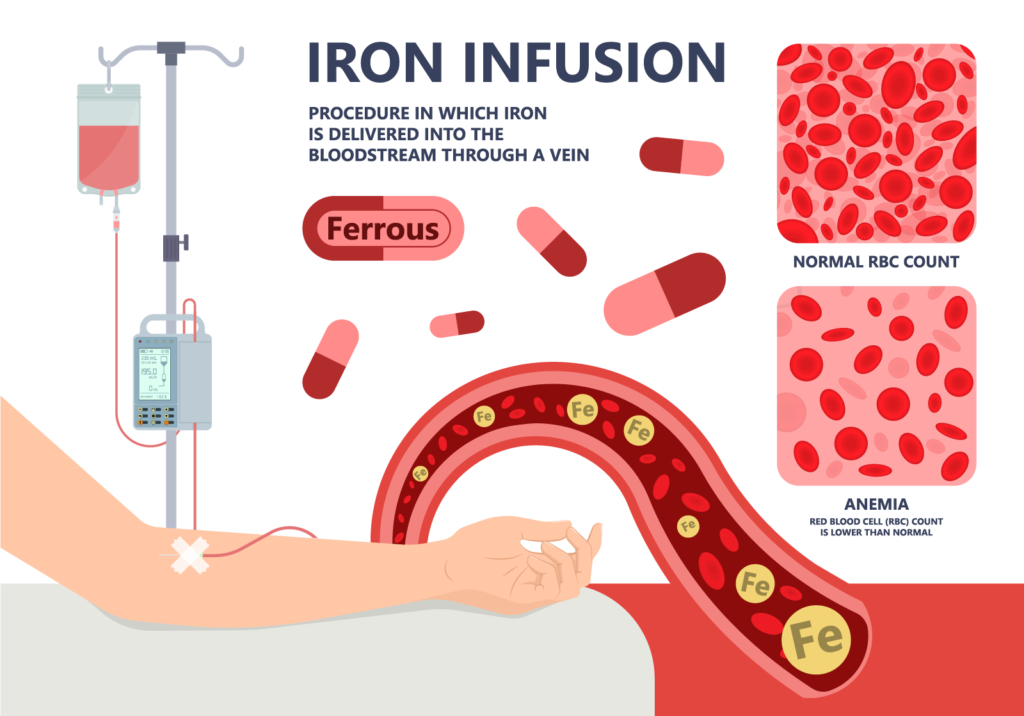Iron deficiency anemia is one of the most common ailments across the world. It can be caused by blood loss, menstruation, pregnancy, malaria, hookworm, dietary conditions lacking adequate iron, celiac disease, cancer, kidney disease, and conditions causing an inability to absorb iron. Populations with high levels of undiagnosed iron deficiency anemia include the elderly — affecting more than 10% of people 65 and older — and those with inflammatory conditions such as chronic heart failure, chronic kidney disease, cancers, and bowel inflammatory diseases. The first line of treatment has been oral iron supplementation, but with side effects like gastrointestinal issues, it is often discontinued.
Intravenous iron is preferred over oral iron supplements to replace iron, especially in individuals with chronic inflammatory conditions or when oral therapy is poorly tolerated or ineffective. However, some doctors resist prescribing IV iron due to outdated information on an older high-molecular-weight iron solution that was associated with severe infusion reactions. Iron formulations used today are much safer. Iron levels can be recovered completely after just one or two infusions, and bypass the gut, thereby avoiding gastrointestinal side effects.
Due to the underutilization of IV iron for the treatment of iron deficiency anemia, we have added an Iron Deficiency page on the topic to our website. If you are interested in using this method, please talk with your doctor to see if it is right for you. Share the recent articles from our webpage with your physician to clarify the best formulations and side effect profiles of modern use of IV iron.



